Del registro a la supervisión: los exámenes de la FIA en las Islas Vírgenes Británicas marcan una nueva etapa para las APNFD

Un enfoque cambiante
La FIA actúa como registrador y supervisor de empresas y profesiones no financieras designadas. (DNFBP) en las Islas Vírgenes Británicas (Islas Vírgenes Británicas) para fines de AML/CFT/CPF. Las DNFBP se enfrentan ahora a un cambio fundamental en la supervisión regulatoria. Lo que comenzó como un esfuerzo para garantizar que todas las DNFBP estuvieran registradas en la Agencia de Investigación Financiera de las Islas Vírgenes Británicas (FIALa supervisión ha evolucionado hacia una supervisión activa. A partir de 2022, la Autoridad de Inversiones Financieras de las Islas Vírgenes Británicas (BVI FIA) se centró en la divulgación para garantizar que las entidades no financieras designadas (y las organizaciones sin fines de lucro) comprendieran que el registro es un requisito legal y sus implicaciones prácticas, no solo en lo que respecta a las obligaciones de prevención del blanqueo de capitales, la financiación del terrorismo y la financiación del terrorismo, sino también en obligaciones como la notificación a la FIA de cambios en propietarios, controladores o directivos clave. Desde 2024, en consonancia con las conclusiones del Informe de Evaluación Mutua de las Islas Vírgenes Británicas y las normas internacionales del GAFI, la FIA ha hecho mayor hincapié en la supervisión de las entidades no financieras designadas registradas. Esto incluye la realización de inspecciones presenciales y remotas, la prestación de asesoramiento y, cuando sea necesario, la adopción de medidas coercitivas. Convertir la supervisión en una ventaja “El cumplimiento no es un costo: es una ventaja competitiva” Para las DNRBP, las inspecciones de la FIA no deben considerarse simplemente un obstáculo para el cumplimiento. Representan una oportunidad para convertir la retroalimentación regulatoria en una ventaja competitiva que protege a los clientes, sustenta el crecimiento y fortalece los ingresos.
El costo del incumplimiento
Las consecuencias del incumplimiento de las obligaciones de las Islas Vírgenes Británicas en materia de ALD/CFT/CPF son significativas. Los hallazgos de incumplimiento pueden resultar en:
- Sanciones económicas;
- Remediación obligatoria dentro de plazos estrictos; y
- Daño reputacional a largo plazo.
El incumplimiento no es solo un problema regulatorio, sino que socava directamente la credibilidad y la viabilidad comercial de las entidades no financieras designadas.“El verdadero costo del incumplimiento no es sólo la multa, sino la pérdida de credibilidad." Principales conclusiones de los exámenes de la FIA
- Políticas que no coinciden con la prácticaLos manuales de ALD/CFT/CPF parecen correctos en teoría, pero no reflejan los procesos y procedimientos reales que utilizan las APNFD. Con frecuencia, tras un análisis más detallado, se descubre que los procesos y procedimientos no cumplen con las obligaciones de ALD/CFT/CPF de las Islas Vírgenes Británicas.
- Evaluaciones de riesgos incorrectas:
- Los marcos de evaluación de riesgos del cliente de la mayoría de las APNFD no consideran las consideraciones de riesgo exigidas por la legislación. Además, las APNFD a menudo no han establecido un enfoque basado en el riesgo para la debida diligencia del cliente, con procedimientos que varían desde clientes con evaluación de bajo riesgo hasta clientes con evaluación de alto riesgo.
- Las evaluaciones de riesgo institucional no identifican con precisión ni cuantifican adecuadamente cómo la APNFD evalúa y calcula sus riesgos de ALD/CTF/CPF.
- Competencia MLRO: Anteriormente, los MLRO no requerían la aprobación de la FIA de las Islas Vírgenes Británicas. En general, se ha observado que, si bien las APNFD han designado MLRO según lo exige la legislación (antes del requisito de aprobación), estos solo tienen un conocimiento básico del marco de prevención del lavado de dinero, la financiación del terrorismo y la financiación del terrorismo. Esto genera deficiencias en el marco de las APNFD, ya que desconocen los requisitos regulatorios de las Islas Vírgenes Británicas y cómo garantizar su aplicación efectiva. Esto también resulta en que los MLRO no investiguen ni determinen adecuadamente las actividades o transacciones sospechosas.
Informes de actividades sospechosas débiles: El bajo volumen de informes de incidentes y la escasa información disponible sugieren que el personal no está detectando ni documentando las señales de alerta. Esto también se ha relacionado con la probabilidad de que el personal no esté recibiendo la capacitación suficiente para identificar correctamente dichas señales. Estos patrones reflejan un entorno en desarrollo donde las inspecciones de la FIA en las Islas Vírgenes Británicas se centran en la sustancia, no en las listas de verificación. Qué significa esto para las APNFD Tanto si ya están registradas como si están en proceso de registro, las entidades no financieras designadas (ENFD) de las Islas Vírgenes Británicas deben prepararse para inspecciones. Los inspectores verificarán la coherencia entre sus evaluaciones de riesgo, los procedimientos escritos y la documentación de las transacciones. Sus obligaciones en materia de prevención del blanqueo de capitales, la financiación del terrorismo y la financiación del terrorismo no pueden considerarse documentos estáticos. Deben funcionar como sistemas operativos dinámicos, responsabilidad del Consejo de Administración y la alta dirección, conocimiento del personal y aplicación constante en los registros de transacciones y las prácticas cotidianas. Cinco
Pasos para prepararse para la inspección
- Hacer que el manual sea operativo: Adapte su manual de ALD/CFT/CPF a las operaciones de su empresa. Las políticas obsoletas o "plantillas" son señales de alerta. Asegúrese de que el personal esté capacitado en el uso de la versión en vivo..
- Fortalecer las evaluaciones de riesgos: Desarrollar evaluaciones de riesgos, tanto de clientes como institucionales, que reflejen los requisitos legislativos. Aplicar un enfoque coherente basado en el riesgo para que los clientes de mayor riesgo activen claramente la EDD, las aprobaciones de la alta dirección y una supervisión reforzada.
- Designar y apoyar al MLRO: Muchas APNFD designan MLRO dentro de sus operaciones como medida de ahorro. Si bien esto puede funcionar, resulta costoso si el MLRO carece de competencia, independencia o autoridad, o si se ve afectado por decisiones empresariales. Designe a personas con las cualificaciones adecuadas y asegúrese de que cuenten con la capacitación, los recursos y las facultades necesarias para proteger la empresa.
- Invierta en formación específica: Impartir capacitación continua y específica para cada puesto en toda la empresa. El personal debe saber cómo detectar señales de alerta, escalar inquietudes y contribuir a informes de operaciones sospechosas (STR) más sólidos con narrativas sustantivas.
Documentar todo: Conserve registros que demuestren el cumplimiento en la práctica: manuales con control de versiones, evaluaciones de riesgos documentadas, archivos de DDC, aprobaciones y registros de supervisión. Los examinadores solicitarán pruebas, así que téngalas a mano y accesibles. Cómo puede ayudar Gold Leaf Gold Leaf se asocia con entidades no financieras designadas (ENFD) para convertir la supervisión en una fortaleza. Hemos trabajado con numerosas ENFD revisando informes de inspección de la FIA, diseñando estrategias de remediación y guiando la implementación de acciones correctivas. Nuestro rol va más allá de la simple corrección de deficiencias. Ayudamos a las empresas a comprender el origen de los hallazgos, para que las mejoras sean sostenibles y justificables. También preparamos a las ENFD para las próximas inspecciones mediante nuestras auditorías internas personalizadas. Al evaluar sus sistemas antes que el regulador, les ayudamos a identificar debilidades con anticipación, remediarlas eficazmente y afrontar las inspecciones con confianza. Nuestro equipo combina experiencia legal, regulatoria y de cumplimiento con soluciones pragmáticas y orientadas al negocio. No solo remediamos. Capacitamos a sus equipos para que asuman el cumplimiento, integrándolo en sus operaciones como un escudo para la integridad y el crecimiento del negocio. Gold Leaf: Construyendo resiliencia a través del cumplimiento
